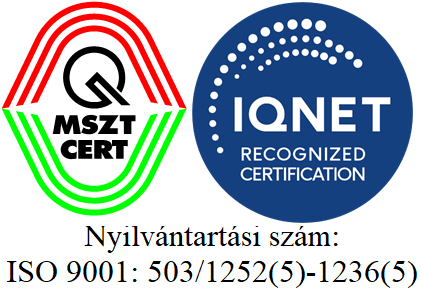News
Inauguration of the National Radioactive Waste Repository
2012.12.06
On 5 December 2012, after a long preparatory and construction period, the inaugural ceremonies of the National Radioactive Waste Repository took place in Bátaapáti. The participants of the inauguration were addressed by Ferenc Kereki, chief executive officer of the Public Limited Company for Radioactive Waste Management (PURAM), Árpád Potápi, Member of the Parliament and mayor of the nearby town Bonyhád, Józsefné Darabos, mayor of Bátaapáti and president of the Social Control Information Association, József Rónaky, director general of the Hungarian Atomic Energy Authority (HAEA), Sándor Nagy, chief executive officer of the MVM Paks II Ltd. and Ute Blohm-Hieber, representing the European Commission. In the press conference before the inauguration Ferenc Kereki told that the new facility and its licences allow disposing of about 40 000 m3 radioactive waste in Bátaapáti from the operation and future decommissioning of the nuclear power plant, at 250 m below ground level. The first disposal chamber provides the possibility to dispose of 4600 drums of radioactive waste in 510 reinforced concrete containers, and by building further chambers the disposal of low and intermediate level radioactive waste will be continuously assured. József Rónaky, director general of HAEA underlined to the press that the commissioning of the repository was the result of a long and instructive procedure and of the common work of representatives of various professions. The director general pointed also out the importance of the Central Nuclear Financial Fund expressing the active state commitment to the disposal of radioactive waste.
Press release of the Hungarian Atomic Energy Authority
2012.10.05
The European Commission released on 4 October 2012 a Communication on the comprehensive risk and safety assessment (‘stress test’) of nuclear power plants in the European Union and related activities. Hungary welcomes the efforts of the Commission and will consider its recommendations thoroughly. Hungary regards the safety and security of nuclear power to be of utmost priority and thus devoted considerable resources to this exercise, just like all other Member States. However, after careful study, the Hungarian Atomic Energy Authority (HAEA) would like to express its concerns with regards to some of the assessment presented in the communication. Notably, the HAEA would like to point out that the final report on the peer review process, which was fully endorsed by the European Nuclear Safety Regulators Group (ENSREG- www.ensreg.eu), and the Commission, on April 26, 2012, demonstrated that safety standards as a whole are good, and no nuclear power plant in Europe is needed to be immediately shut down. The HAEA would also like to highlight that the site specific issues that were identified in the communication will be addressed on the basis of approved National Action Plans, and that the process itself clarified that safety measures and mechanisms are continually enhanced. Furthermore, while the communication states correctly that there is still work to be done, it may create the false impression that this is on an unprecedented scale. Overall, the results of the stress test will ensure that the robustness of Europe’s NPPs are improved even further against extreme situations beyond safety margins previously considered to be appropriate. The HAEA will continue to work on both the domestic and the international level to improve the safety and security of the nuclear industry, and will consider the merits of all future proposals of the European Commission fully, with the understanding that differences in national approaches should by themselves not be considered a weakness a priori. Our common aim must be to create institutional provisions that work and also ensure the trust of the European and global public in the safety of nuclear installations in the EU. Background In response to the Fukushima accident in March 2011, the European Council – following preparations by the Hungarian EU Presidency – agreed to call for ‘stress tests,’ including rigorous peer reviews, across the EU. These were performed on a voluntary basis and following a transparent, mutually agreed methodology under the auspices of the European Nuclear Safety Regulators Group (ENSREG), created to assist the Commission on nuclear safety matters and gathering representatives of all national nuclear safety regulators. The final report on the peer review process was fully endorsed by ENSREG, and the Commission, on April 26, 2012 and in particular the outcomes which demonstrated that safety standards as a whole are good, and no nuclear power plant in Europe is needed to be immediately shutdown. Subsequently, the European Commission released on 4 October 2012 a Communication on the comprehensive risk and safety assessment (‘stress test’) of nuclear power plants in the European Union and related activities.
New Head of the General Nuclear Directorate
2012.08.06
Because of the retirement of László Koblinger former Deputy Director General of HAEA Kristóf Horváth has been appointed from 1 August 2012 to Deputy Director General of the Hungarian Atomic Energy Authority as Head of the General Nuclear Directorate. Kristóf Horváth has been working for the HAEA in different responsible positions since 1997. He graduated as engineer-physicist at the Budapest University of Technology and Economics and received his PhD in 2006 in military technical sciences. He is taking part in the acitivity of the European Safeguards Research and Development Association as president and in the activity of the Euratom Supply Agency as member of its Advisory Committee.



 ©HAEA - All rights reserved
©HAEA - All rights reserved